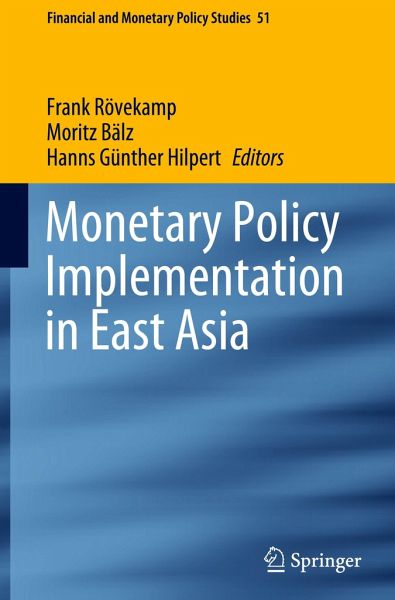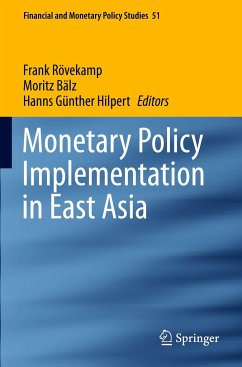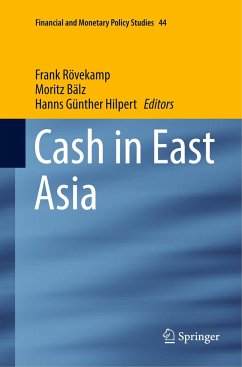
Monetary Policy Implementation in East Asia

PAYBACK Punkte
38 °P sammeln!
This book shares essential insights into the implementation of monetary policy in various East Asian countries. Highlighting case studies from China, Taiwan, Korea, Japan and Singapore, leading economists and practitioners from central banks illustrate how dependent effective monetary policy is on the institutional and financial market environment, as well as on successful implementation and communication. The respective contributions cover various aspects of monetary policy implementation, such as: How is inflation targeting handled? For what purposes and how do central banks operate on finan...
This book shares essential insights into the implementation of monetary policy in various East Asian countries. Highlighting case studies from China, Taiwan, Korea, Japan and Singapore, leading economists and practitioners from central banks illustrate how dependent effective monetary policy is on the institutional and financial market environment, as well as on successful implementation and communication. The respective contributions cover various aspects of monetary policy implementation, such as: How is inflation targeting handled? For what purposes and how do central banks operate on financial markets, and what are the (at times unintended) effects? How do currency market interventions help achieve the monetary policy targets set by individual countries or areas? In addition, Asian experiences are contrasted with those from the Eurozone.














